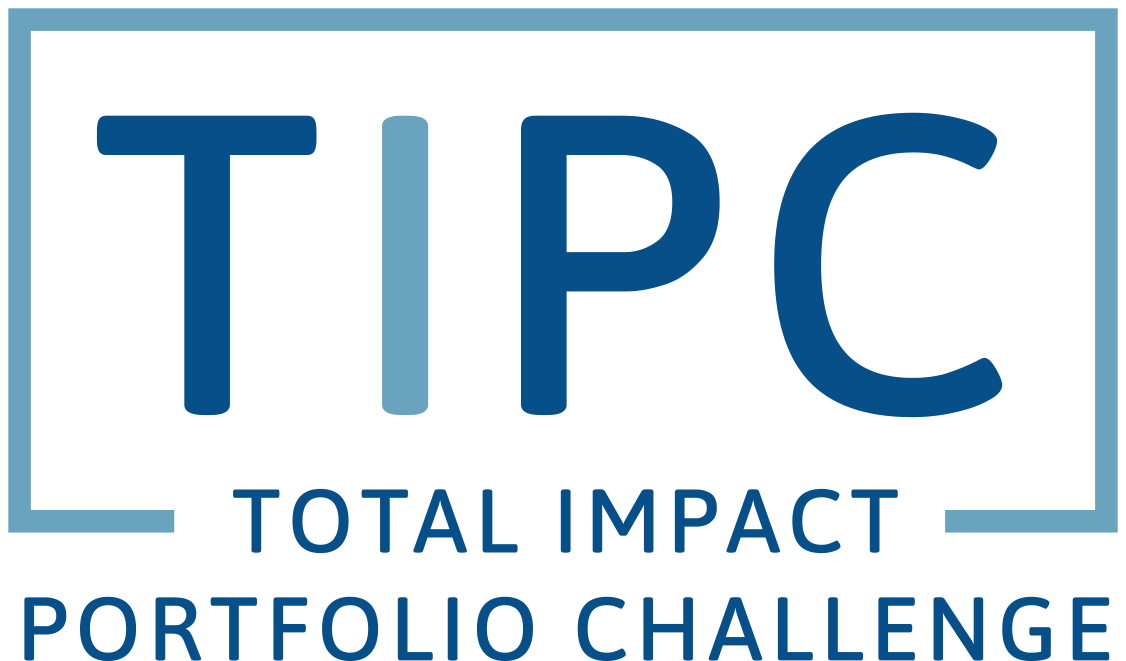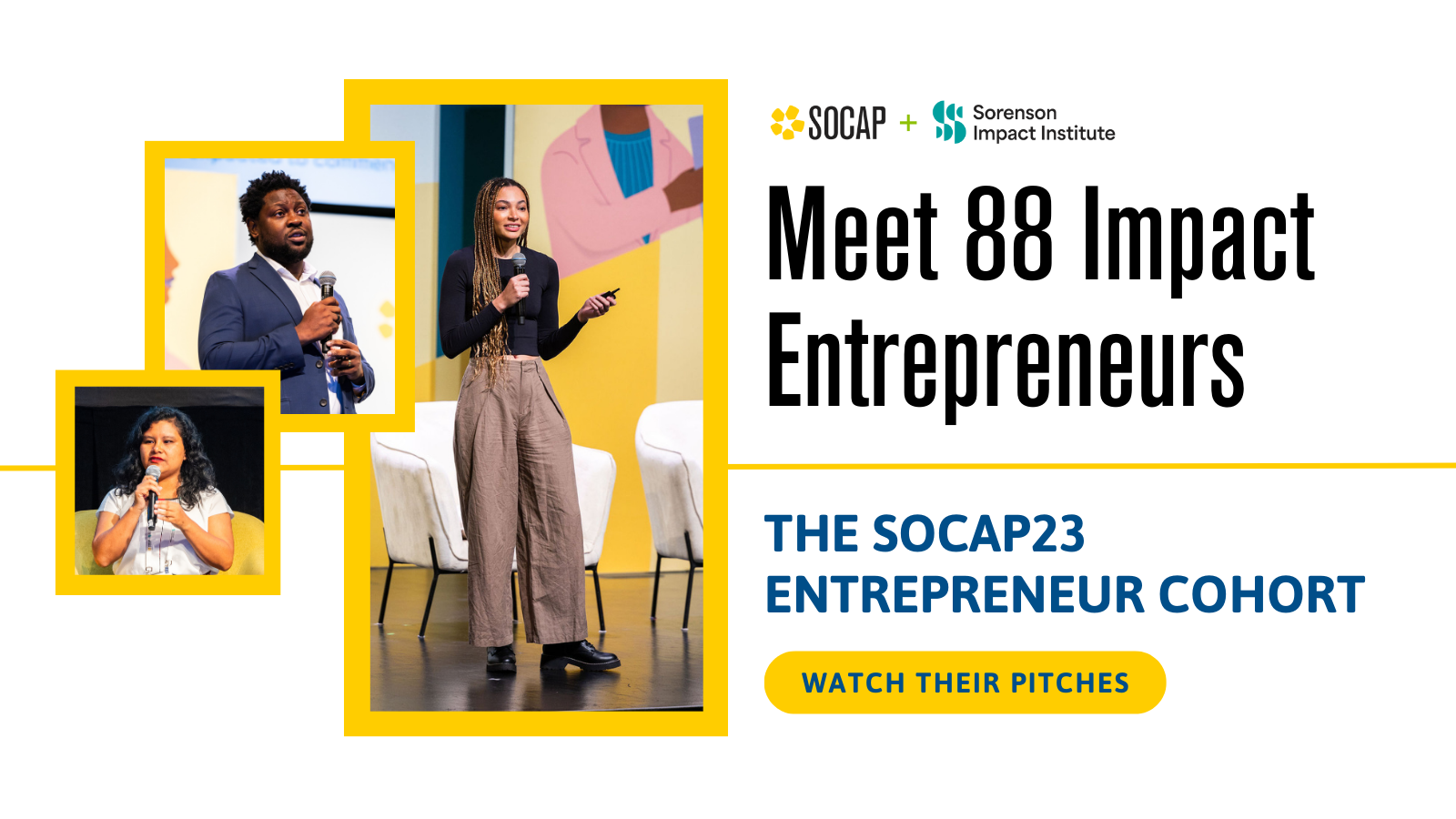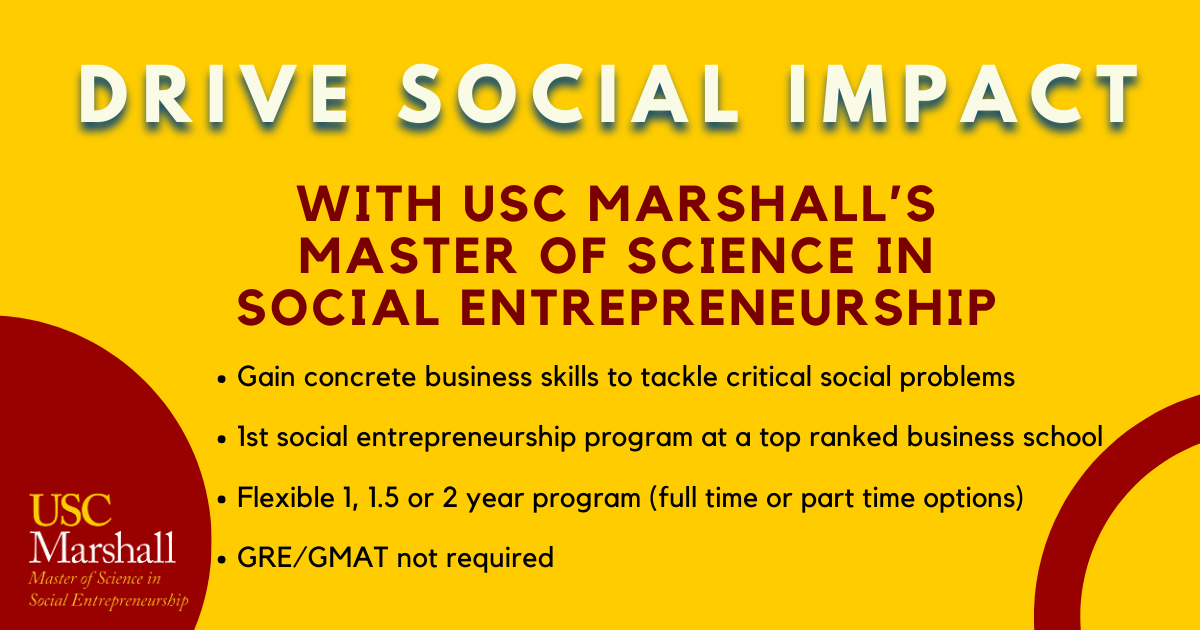Total Impact Portfolio Challenge Finalists Present Their Peach Foundation Portfolios
Many of the individuals who will drive the future of impact investing are currently studying at colleges and universities. A collaboration between Wharton Social Impact Initiative and SOCAP Global, the annual Total Impact Portfolio Challenge introduces many of these graduate students to the potential of building a 100% impact portfolio.
Each year, the Total Impact Portfolio Challenge accepts applications from graduate schools across the United States. This year was the third year, and students hailing from 29 universities formed teams to compete in answering the challenge: building a 100% impact lens portfolio for a hypothetical $75mm family foundation. The fictional Peach Foundation was inspired by the pandemic and racial injustices to shift their portfolio to impact. Students are tasked with building a portfolio that meets the client’s impact and financial return goals, target asset allocation, and risk tolerance.
The teams formed in the fall of 2020 and were supported throughout the program, which ended with the Finals presentation on May 3, 2021, with educational and mentorship resources, including:
- Bank of America wealth advisors, analysts, portfolio managers, and sustainability experts who served as coaches for the teams
- Webinars from industry leaders including; Matt Christensen, Global Head of Sustainable and Impact Investing at Allianz Global Investors and Martin Jarzebowski, Director of ESG & Responsible Investing at Federated Hermes
- Access to leading data sets, including Sustainalytics and MSCI through Wharton Research Data Services (WRDS), and tools, including Toniic’s Impact Portfolio Tool and the Arabesque S-Ray Tool
How the Finalists Approached a Total Impact Portfolio
All the teams’ submissions were reviewed and ranked and the four top finalists presented their portfolios and answered questions from the following list of esteemed judges:
- Mary Green, VP, ESG Client Portfolio Manager, Federated Hermes
- Mary Stokes, Managing Director, Bank of America Private Bank
- Ruth Shaber, Founder and President, Tara Health Foundation
The four finalist teams came from Bard College, University of Southern California, Fordham University, and Duke University.
After presentations and rounds of questions, the judges deliberated and named Bard College as the winning team, with University of Southern California as runner-up.
Bard’s portfolio took an intersectional approach, building climate change and justice into part of its screening process. The team also planned to lean into the Certified B Corporation community as a lever for investing in change, as the companies are screened for social and environmental impact in order to certify.
We’re proud of each of this year’s participating teams, and extend our congratulations to all the finalists and winning teams!
Below, we share a quick summary, in the words of the team members, of how they made their portfolio selections.
Bard College
“We sought to achieve holistic impact through all asset classes of the portfolio aligned to the Peach Foundation’s values where possible. In addition to the impact goals of the Peach Foundation around children, education, health and equity, climate change was also very critical to us. Investments focused with future generations in mind would be poorly served without addressing the long-term impacts of climate change. To achieve this holistic impact, we employed a combination of best-in-class negative screens, and mission-aligned investing strategies.”
University of Southern California
“We wanted to root our portfolio in the values of The Peach Foundation. Knowing that its heritage lies is in helping children in Georgia, we sought to find a way to expand this original passion into a broader vision for the country. We constructed our portfolio grounded in the Foundation’s financial and impact goals, but also found a way to incorporate our own individual passions in the construction process — making our portfolio personal to both us and The Peach Foundation.”
Fordham University
“Our final portfolio submission was guided primarily by our rigorous screening and manager selection methodologies, differing levels of intentionality and diversification, and hyper-local attention to bettering the lives of children specifically in Georgia. We decided on this angle early on, because we understood that a total impact portfolio must be flexible to changing economic and social environments. In tandem, we also focused on the screening and selection methodology with the motive of developing a sustainable and adaptable long-term approach.”
Duke University
“We decided it was important to consider not only what we invested in but who we invested in. Given the Foundation’s interest in racial equity and focus on Georgia, we opted to source and invest with Black-owned investment management firms and firms based in Georgia, in addition to other impact measurements. We believe that investment in underrepresented minority (URM) managers and managers in underserved markets will not only begin to address the racial inequities in asset management but will have a trickle-down effect to URM and underserved communities as well.”
Learn more about the Total Impact Portfolio Challenge:





